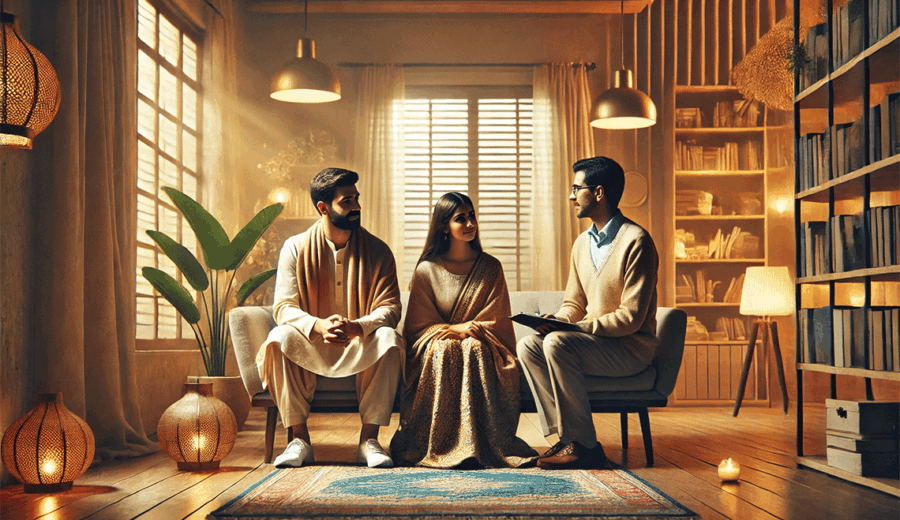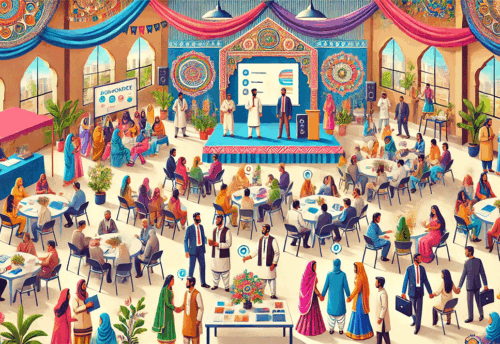
Marriage Counselling and Support Systems
Marriage Counselling and Support Systems in South Asian Communities
Marriage is a cornerstone of South Asian culture, celebrated with grand traditions, rituals, and an emphasis on enduring partnerships. However, like all relationships, marriages face challenges, and seeking help has become increasingly common, especially in diasporic communities. Marriage counseling is gaining acceptance in South Asian communities in the UK, where cultural expectations meet the challenges of a modern, multicultural environment.
Growing Acceptance of Marriage Counseling in South Asian Communities
Historically, marriage counseling was often stigmatized in South Asian societies, perceived as a sign of failure or weakness. However, attitudes are shifting. Several factors contribute to this change:
- Awareness of Mental Health: Campaigns and discussions about mental health have encouraged South Asian individuals to prioritize their emotional well-being and recognize the value of therapy.
- Generational Influence: Younger generations, exposed to diverse perspectives, are more open to seeking professional help to strengthen their relationships.
- Cultural Adaptation: Living in multicultural societies like the UK has prompted many South Asian couples to seek counseling as a proactive measure to address conflicts and improve communication.
Addressing Mental Health and Communication Issues
Marriage counseling addresses a wide range of issues that couples encounter. Key areas include:
- Mental Health Challenges:
- Depression, anxiety, and stress, often exacerbated by cultural and familial expectations.
- Postpartum depression or parental stress, which can strain a marriage.
- Coping with external pressures such as immigration stress, financial burdens, or caregiving responsibilities.
- Communication Breakdown:
- Miscommunication or lack of communication is a leading cause of marital strife.
- Counselors provide tools to improve active listening, empathy, and clarity in expressing needs and concerns.
- Conflict Resolution:
- Managing disagreements respectfully and effectively.
- Learning to compromise without losing one’s individual identity.
- Cultural and Generational Differences:
- Navigating cultural norms and expectations unique to South Asian marriages.
- Balancing traditional family roles with modern career aspirations and individual goals.
Resources for South Asian Couples in the UK
The UK is home to a growing network of resources tailored to support South Asian couples in their marital journeys. Some notable services include:
- Community-Based Support: Organizations like Relate, Asian Family Counseling Service, and South Asian Mental Health organizations offer culturally sensitive counseling sessions.
- Faith-Based Counseling: Many South Asian couples seek guidance through religious institutions, which often provide faith-aligned marital advice and conflict resolution.
- Workshops and Seminars: Programs focusing on healthy relationships, stress management, and parenting skills are becoming more accessible. These initiatives often address the unique challenges faced by South Asian couples.
- Teletherapy Services: Online platforms offer private, flexible counseling sessions, especially beneficial for couples juggling busy schedules.
- Culturally Informed Counselors: Counselors with an understanding of South Asian cultural values provide a safe space to discuss sensitive issues without fear of judgment.
Impact of Marriage Counseling
Marriage counseling not only helps resolve conflicts but also strengthens the marital bond. By addressing underlying issues, couples can:
- Build trust and intimacy.
- Develop healthier communication patterns.
- Foster mutual respect and understanding.
- Navigate external pressures with a united approach.
Breaking the Stigma
The growing acceptance of counselling in South Asian communities is a testament to evolving mindsets. Public awareness campaigns, support groups, and positive testimonials are crucial in breaking the stigma surrounding therapy. As more couples share their success stories, the perception of counselling as a tool for empowerment, rather than failure, continues to grow.





Leave a Reply